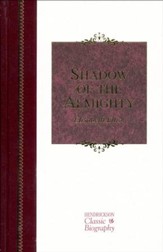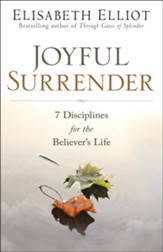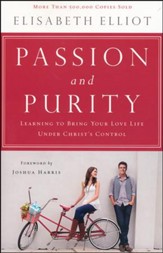
Quotes by Elisabeth Elliot
Open hands should characterize the soul’s attitude toward God – open to receive what He wants to give, open to give back what He wants to take. Acceptance of the will of God means relinquishment of our own. If our hands are full of our own plans, there isn’t room to receive His.
Be patient. Is God not fast enough? Are His answers too tough? A quick sympathy from a friend may suggest that you simply drop out, be good to yourself, get away from it all. Someone else will be sure to say, “You need counsel.” Are you sure? One hour at the foot of the Cross may obviate the necessity of professional counseling (no such thing existed until the twentieth century – what did folks do before then?).
Faith is not an instinct. It certainly is not a feeling – feelings don’t help much when you’re in the lions’ den or hanging on a wooden Cross. Faith is not inferred from the happy way things work. It is an act of will, a choice, based on the unbreakable Word of a God who cannot lie, and who showed us what love and obedience and sacrifice mean, in the person of Jesus Christ.
One way to begin to see how vastly indulgent we usually are is to fast. It is a long day that is not broken by the usual three meals. One finds out what an astonishing amount of time is spent in the planning, purchasing, preparing, eating, and cleaning up of meals.
Heaven is not here, it’s There. If we were given all we wanted here, our hearts would settle for this world rather than the next. God is forever luring us up and away from this one, wooing us to Himself and His still invisible Kingdom, where we will certainly find what we so keenly long for.
While I disparage the exercise of “building one’s self-esteem” I indulge in it every time I imagine myself free from the defects I perceive in someone else.
Throughout the millennia of human history, up until the past two decades or so, people took for granted that the differences between men and women were so obvious as to need no comment. They accepted the way things were. But our easy assumptions have been assailed and confused, we have lost our bearings in a fog of rhetoric about something called equality, so that I find myself in the uncomfortable position of having to belabor to educated people what was once perfectly obvious to the simplest peasant.
My most earnest of all pleas to singles is abandonment of the self, surrender to Christ of all unfulfilled longings, an unequivocal willingness to receive whatever God assigns, and a determination to practice the sacrificial principle of Isaiah 58:10-11. Life becomes not only far simpler, but surprisingly joyful and free.
In space, astronauts experience the misery of having no reference point, no force that draws them to the center. Where there is no “moral gravity” – that is, no force that draws us to the center – there is spiritual weightlessness. We float on feelings that will carry us where we were never meant to go; we bubble with emotional experiences that we often take for spiritual ones; and we are puffed up with pride. Instead of seriousness, there is foolishness. Instead of gravity, flippancy. Sentimentality takes the place of theology. Our reference point will never serve to keep our feet on solid rock. Our reference point, until we answer God’s call, is merely ourselves. We cannot possibly tell which end is up.
To the world at large this was a sad waste of five young lives. But God has His plan and purpose in all things… The prayers of the widows themselves are for the Aucas. We look forward to the day when these savages will join us in Christian praise. Plans were promptly formulated for continuing the work of the martyrs.
Discipline, for the Christian, begins with the body. We have only one. It is this body that is the primary material given to us for sacrifice. We cannot give our hearts to God and keep our bodies for ourselves.
Much sickness – physical, mental, and emotional – surely must come from disobedience. When the soul is confronted with an alternative of right or wrong and chooses to blur the distinction, making excuses for its bewilderment and frustration, it is exposed to infection. Evil is given the opportunity to invade the mind, the spirit, and the body and the sick person goes off to an expert who will diagnose his trouble. Sometimes the patient knows well what his trouble is and for this very reason has not consulted the Lord, fearing what He will say: Confess. Turn around. Quit that indulgence. Do not pity yourself. Forgive that person. Pay back what you owe. Apologize. Tell the truth. Deny yourself. Consider the other’s well-being. Lay down your life.
Discipline – The Glad Surrender, Revell, 1982, p. 74. Get this book!
Worry is the antithesis of trust. You simply cannot do both. They are mutually exclusive.
Discipline – The Glad Surrender, Revell, 1982, p. 106. Get this book!
To be a follower of the Crucified Christ means, sooner or later, a personal encounter with the cross. And the cross always entails loss.
Where there is no “moral gravity” – that is, no force that draws us to the center – there is spiritual weightlessness. We float on feelings that will carry us where we never meant to go; we bubble with emotional experiences that we often take for spiritual ones; and we are puffed up with pride. Instead of seriousness, there is foolishness. Instead of gravity, flippancy. Sentimentality takes the place of theology. Our reference point will never serve to keep our feet on solid rock, for our reference point, until we answer God’s call, is merely ourselves. We cannot possibly tell which end is up. Paul calls them fools who “…measure themselves by themselves, to find in themselves their own standard of comparison!”
Discipline – The Glad Surrender, Revell, 1982, p. 19-20. Get this book!
“Is discipline the same as punishment?” a young woman asked me. She was troubled by the idea of God wanting to “get even.” I gave her 1 Corinthians 11:32 (NEB) “When…we do fall under the Lord’s judgment, He is disciplining us, to save us from being condemned with the rest of the world.” God’s “punishment” of His children is never retribution, but rather correction. We know that we are indeed His beloved sons, sharing in the discipline that all sons share – for a high purpose, namely that we may some day share in His holiness, “attain life.”
Discipline – The Glad Surrender, Revell, 1982, p. 153. Get this book!
Does God ask us to do what is beneath us? This question will never trouble us again if we consider the Lord of heaven taking a towel and washing feet.
It is Christ who is to be exalted, not our feelings. We will know Him by obedience, not by emotions. Our love will be shown by obedience, not by how good we feel about God at a given moment. “And love means following the commands of God.” “Do you love Me?” Jesus asked Peter. “Feed My lambs.” He was not asking, “How do you feel about Me?” for love is not a feeling. He was asking for action.
Discipline – The Glad Surrender, Revell, 1982, p. 148. Get this book!
[Spiritual strongholds] begin with a thought. One thought becomes a consideration. A consideration develops into an attitude, which leads then to action. Action repeated becomes a habit, and a habit establishes a “power base for the enemy,” that is, a stronghold.
Discipline – The Glad Surrender, Revell, 1982, p. 69. Get this book!
Supreme authority in both church and home has been divinely vested in the male as the representative of Christ, who is Head of the church. It is in willing submission rather than grudging capitulation that the woman in the church (whether married or single) and the wife in the home find their fulfillment.






